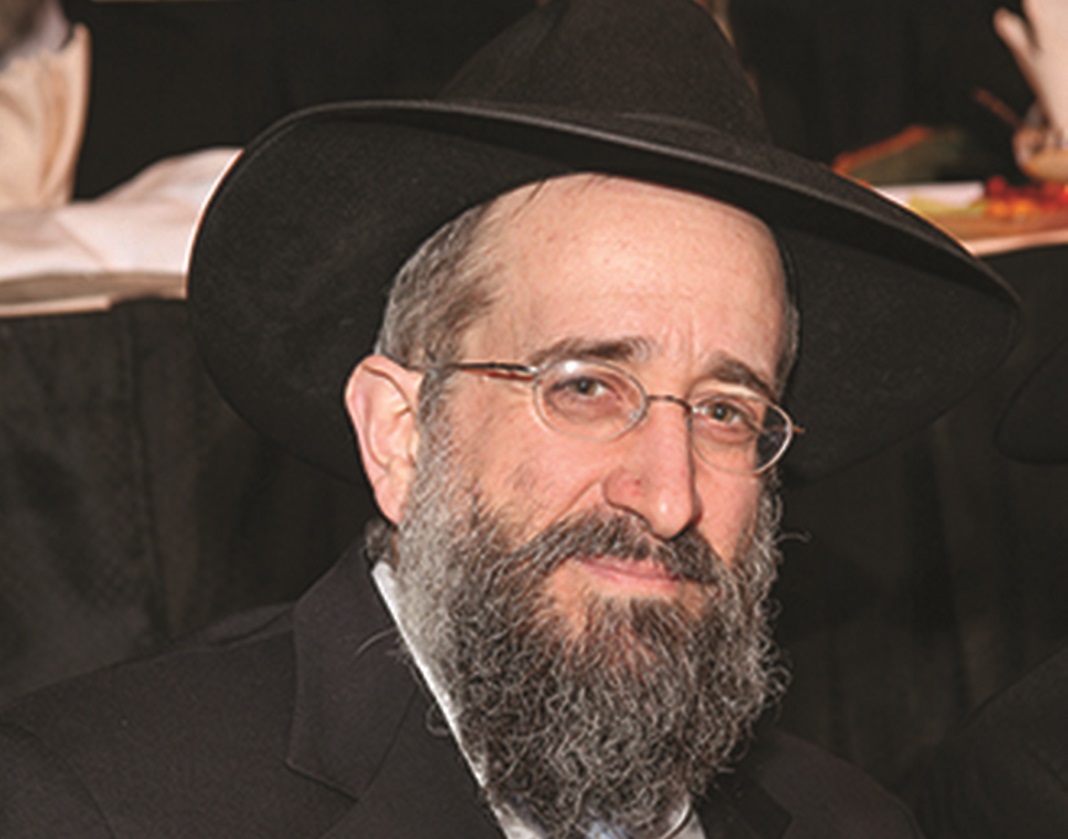Money Talks

Rav Yisroel Reisman sheds light on the underlying issues at the heart of our community’s spending habits

As frum Jews who know that every penny comes from a Divine Source, we’re aware that even the most responsible budget is not a guarantee of solvency, that blessings come from unexpected sources, and that financial accountability must coexist with bitachon in the true Provider. If someone lives with a tight budget and accounts for every last penny, is he leaving Hashem out of the picture? Does bitachon mean leaving wiggle room in the budget, and is a perfectly balanced spending plan an overdose of hishtadlus?
We always have HaKadosh Baruch Hu in the picture, but it’s a basic fact that a person shouldn’t spend money if he doesn’t have it.
Rashi makes this clear in his commentary on the Gemara in Beitzah (16a). The Gemara says that a person’s Shabbos expenditures aren’t deducted from his allotted yearly mezonos (the money Hashem provides to cover foodstuff). Rashi infers that therefore one may spend as he wishes on his Shabbos expenses. The clear implication is that this freedom is reserved for Shabbos alone, and that otherwise a person is not supposed to spend beyond his budget.
We live with a balance of hishtadlus and bitachon, juggling between the required mortal effort to reach a goal and the trust that Hashem will provide. The Beis HaLevi in the beginning of parshas Mikeitz, the Michtav MeEliyahu, and the Haflah at the end of the Sefer HaMikneh say virtually the same thing: that the necessary balance of hishtadlus and bitachon depends on the individual. There’s no one generic formula for everyone. A person who truly has bitachon is allowed to conduct his life based on that trust. But most people must exert normal human efforts until they reach the point of bitachon.
Bitachon, furthermore, must be exercised for the right purpose. It comes into play in situations where, for example, someone relies on Hashem so he can learn more Torah, or turns down a job that compromises tzniyus. That is a proper exercise of bitachon. But to say “I have bitachon and therefore I’m going to buy expensive foods outside of my budget for my weekday meals” — well, I’ve never heard of an adam gadol having that type of bitachon. Bitachon has nothing to do with an extravagant lifestyle. Zero.
In general, it’s proper and necessary to make financial decisions based on the money you actually have. You can’t figure everything out to the penny, but nevertheless, basic fiscal responsibility is not a contradiction to bitachon.
Parents today get mixed messages. They are told to hold to their principles and set limits with their children. On the other hand, they are encouraged to be understanding and accommodating of their children’s needs to “fit in.” And very often, “fitting in” means spending on clothing, toys, gadgets, vacations, etc., that are beyond the budget. We’re past the point where it was just one or two lucky children with a high-end gadget; today there are many children riding $500 bikes, and when a child says “but everyone has it,” there’s a good chance that a large percentage of his peers actually do have it.
How does a parent navigate these conflicting interests, and figure out what to put first?
Anything related to chinuch will bring with it a balancing act. It’s not just money; certain types of behavior, certain types of dress or entertainment, technology allowances — all require a balancing act.
It’s always difficult to find the right balance between our principles and our children’s particular needs and desires. And the right balance can be different for each child. Some children do need the latest gadget or clothing, and when they need it, the parent has to make a decision. (When the parent is in chinuch or another klei kodesh job, and that means a limited budget and he can’t afford to fulfill the child’s requests, it makes things hard. The child will sometimes develop anger about their parents’ choices, making a difficult balancing act even trickier.)
Very often it helps to talk to mechanchim for guidance. But certainly part of our chinuch responsibility is teaching our children to be satisfied. A child should be raised to know that we can’t afford everything, that there are certain things that we try to do without. This is a very basic chinuch value.
Generally, people who are not satisfied turn to spending money in an effort to bring themselves happiness. Children are no different. A child who’s doing well in yeshivah doesn’t feel the need to keep up with the trends. A child who’s struggling does.
As frum Jews, part of our value system is to be part of a community. This means conforming to communal standards and expectations, and often expenses as well. Shtreimels, sheitels, black hats, and conservative clothing are costly items, but we see them as the “price” of belonging. If you belong to a chassidus that wears shtreimels, then whether or not it fits into your budget, you will find the money to purchase that shtreimel. From the get-go there is a price of belonging and we make it work. How can we encourage budgetary awareness and financial responsibility when so much of the “givens” in our communities are objectively costly?
And then consider that if you sent your daughter to a mainstream sleepaway camp in 2021, there’s a good chance that many of her fellow campers arrived with five or more 60-dollar T-shirts. We want to foster belonging and we acknowledge it comes with a price, but how far can the price rise before it becomes untenable?
There’s no question that a child has to know where he belongs. To the degree that dress is part of belonging, it becomes a necessity.
In a yeshivah setting, the main driver of status is generally academics, and in elementary school the children that are admired do well academically. In camps, the stars are often the charismatic or talented children. Sometimes these children are the ones with the needs and the means to buy more expensive things. Parents who can afford to keep children in a bungalow colony close to home would do well to do so, because the camps are sometimes a breeding ground for this dynamic where materialism becomes a gateway to popularity. If a person can postpone sleepaway camp and keep children closer to home, that’s probably a very good idea.
As a society, we encourage our children to marry young, knowing they can’t reasonably be expected to manage financially without our help. Does parental help during those early years set them up for long-term entitlement? What’s the best way to ease them out of a pattern of dependence without resentment or hurt feelings?
Idon’t find that those who start off married life with parental support are more demanding or have a greater sense of entitlement than their counterparts. In the dating process, it’s true, there’s a sense that people who are able to learn seriously should be entitled to financial help. And that’s not fair to parents who can’t afford it. But in the long run, I don’t take the view that the people who are sitting in kollel are taking advantage of their parents. I don’t see it that way.
Furthermore, in the circles I’m in, I don’t find the couples who start off in kollel to be less fiscally responsible as they get older. The financial support during those years does mitigate some of the stress of early marriage, but on the other hand, these couples seem to do well in the long term. I don’t think it’s harming them down the road.
For the most part, the system is working. I don’t see that those who begin their married lives with five years of kollel are struggling more than those who go to school right away. In the Modern Orthodox community, where kollel is much less common, I don’t think that people who’ve been married 15 to 20 years are wealthier than the average person in Lakewood who spends five years in kollel.
If there is a difference, I think that if anything, the community that enters the workforce at a more mature age seems to be doing better. In fact, people who enter the workforce or college only after marriage might do better and work more diligently than those who go early on, when there’s less of a sense of urgency and seriousness.
People worry about weaning their married children off support, but the whole process can probably be healthier and smoother if parents communicate clearly about what they can and can’t do for the couple, right at the beginning. What’s the proper mindset to have when reaching this exciting stage?
Acouple that’s about to get married can’t really know exactly what will happen in five years. But it’s very important that there be a certain amount of clarity right at the outset.
Sometimes, in the joy of a child getting married, people over-give or over-promise. I don’t think the young couple has to be held on a tight leash, but financial support should be provided in a reasonable way. If you want to give more, give it later. Don’t let the joy of the moment — when your daughter gets engaged to a good learner — cloud your judgment and cause you to commit to terms you can’t meet or a standard the couple doesn’t need. Later there will be time to give more.
We are hearing calls for those with greater means to scale back their standards so as not to create peer pressure among people with less. But Yiddishkeit is not Communism; we don’t believe that everyone has to live, spend, or dress at the same standard. If someone is living well within their means, supporting frum businesses, and giving tzedakah — should those who have less be able to understand that different people have different income brackets, and we don’t all need to be the same? On a hashkafic level, why are we pushing people not to live with the means that Hashem gave them?
There’s a difference between expenditures that make life easier and expenditures that are just for show.
Conveniences make life easier. For example, spending Yom Tov or Shabbos at a hotel or hiring a driver can spare a person effort, time, and energy. If wealthy people can afford such expenses, whether it’s wise to indulge in them I don’t know, but they don’t have to withhold from spending just because other people cannot afford to do the same.
This is not the same as an extravagance. Extravagances are done “for show,” to broadcast a message outward. For example, expensive vehicles are usually more comfortable and more reliable — but at a certain point, when you go from a $50,000 vehicle to a $100,000 vehicle, it’s not really about convenience or comfort. It’s a status symbol.
No one will admit they’re buying that car or building that home or making that simchah to signal their wealth, but certain things are, by definition, for the show. People spend on status symbols because these affect the community’s perception of them — you don’t need a status symbol when no one’s looking. And when it comes to community matters, we need to exercise responsibility.
We must make this distinction between convenience and extravagance. If someone wants to build a house large enough so that every child will have his own bedroom, that’s fine. But to make the exterior of that house showy raises the community standard and does real damage.
Wealthy people are entitled to make their lives as comfortable as they wish. They’re not entitled to go out into the streets and throw their money all over in a way that makes people feel inadequate and causes them pain. It’s very basic.
Outside of our own daled amos, what can the average person do to temper the tide of materialism? The stores, ads, and businesses around us keep upping the ante and it’s hard to stick to our principles.
People who feel the challenges of ever-increasing financial burden have to realize that we vote with our feet all the time. We’re a community. People vote and voice their preferences by attending events, by patronizing businesses, by participating in things.
What happens when someone builds a fancy boutique-type store to sell milk and bread? At first glance, we might blame the proprietor for raising the bar. But in fact it’s the people patronizing the store who make it a success. Someone who’s looking to make money will serve the community what it seems to want.
Many of us feel that the shopping habits of our community have become absurd. When you go to the Catskills and see these fancy stores, you wonder what the non-Jewish locals think. Your typical Catskills resident shops at Shoprite, and he’s never seen such an extravagant store. What is he thinking?
There are stores with the old-fashioned ads advertising sales and other stores advertising high-end luxury steaks. A frum Yid has to have a perspective on what he feels is right. I would like to think there are more Yidden who are sensitive to all these types of ads — the ads are there because people respond to them.
Here is the important point: The store owner is not a rasha; he’s someone seeking to earn money. He responds to us. So we can’t blame the proprietor. He’s setting up his business with the best possible chance of getting people to spend money. We have to blame the people who are patronizing it and feeding this trend.
So if you want to show a sense of responsibility for Klal Yisrael, you have to vote with your feet.
If Klal Yisrael wants to stop this runaway increase in our cost of living, the only way to do it is to get together and be proud enough to say “I’m going to shop in the other type of store. I’m going to make a statement.” People have to have the courage to make this statement. The people who can’t afford the high-end shopping have to make the statement, and the people who can afford it but want to be a little altruistic should do so as well.
Our seforim teach that there exists an inverse relationship between gashmiyus and ruchniyus. These days there seems to be an expectation that one can be rich in both — “have it all” both spiritually and materially. How can that be?
People can be rich and frum. But people’s hearts can only be invested in one at the cost of the other.
When the Michtav MeEliyahu writes about the inverse relationship between wealth and serving Hashem, he doesn’t mean that a person cannot be simultaneously rich and an eved Hashem. He means that when a person puts his heart and soul into gashmiyus, he is sacrificing some of his passion for frumkeit.
Today, because of the strange economic environment, people can become rich very quickly. But the concern is not the actual wealth so much as the focus on the wealth. There are priorities in life. The more you put your heart and soul into worrying about your portfolio, the less you invest your heart and soul into being able to serve HaKadosh Baruch Hu.
When our children say “Mommy I need it, everyone’s doing it” — we sigh and roll our eyes. But that’s what the adults are doing. We are raising the standards because we have this childish need to follow the crowd. We need to act like adults.
It’s become standard for people in our community to lease cars. Yet it’s not financially responsible for a person with a limited budget to lease a car. For the price of a three-year lease he can buy a car that will last six or seven years. But leasing has become the norm, and people don’t have the courage to say “that’s for the wealthy people.”
Why are balloons a necessary part of a bris milah? You wonder what Eliyahu Hanavi is thinking when he sees all those balloons. Individuals really need to think for themselves and question why some of these items have become necessary. Hopefully we can reach the point where, before they spend on another item, people ask themselves, “Is it because I want it or because everyone does it?”
I think the financial pressures are a major issue in our community not because of the financial end alone, but also because they greatly impact shalom bayis, which in turn impacts our ability to educate our children properly. The upscale living standards in our community are a harmful influence that’s behind a lot of the other disturbing things we see happening — a lack of complete integrity in finances, shalom bayis issues, the pressure between married children and their parents and in-laws. Many of these problems can be traced back to money.
A story is told about the Berditchever Rebbe. Someone approached him and complained, “Look at the Shemoneh Esreh of a frumme Yid! You see him putting his heart into davening, but if you analyze his davening, the kavanah is all about the kopecke, all about having money.”
“That may be true,” the rebbe replied, “but if you know how to value the kopecke, you’ll know that for us Jews it’s all about raising children.”
We have to go back to that mindset, and understand that having money, for a Jew, is really all about the continuity of ehrliche doros.
Rav Yisroel Reisman is the rosh yeshivah of Torah Vodaath and rav of Agudath Israel
(Originally featured in Mishpacha, Issue 878)
Oops! We could not locate your form.







